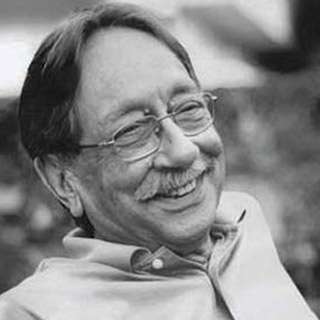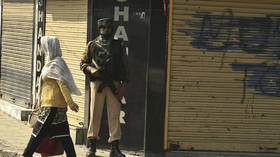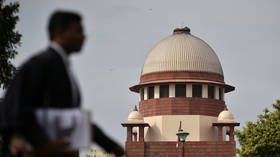Ex-Indian foreign intel chief A.S. Dulat asks: Can Modi bring cheer to Kashmir?

Kashmir has been buzzing with tourists this summer, much more than ever since the abrogation of Article 370 of the Indian constitution on August 5, 2019.
The area in and around scenic Dal Lake is being converted into a smart city and the project, which got a fillip during a G20 tourism meeting in May, is likely to be completed by next year. Double decker buses are plying between Dal Gate and Nishat Bagh from 10 am to 10 pm. Traffic on the picturesque boulevard is bumper-to-bumper and several new eateries have sprung up – some of them open till midnight. Le Délice, a French bakery at Dal Gate, is as good as any in India. Hotels are packed and so are flights. There are over 30 daily flights between Delhi and Srinagar. Seasonal business is flourishing. Senior citizens who yearn for normalcy and peace prefer Delhi to Kashmir. However, time is of the essence and tomorrow may be too late.
On the surface, everything looks hunky dory, but when the volcano the Kashmiris often speak of will erupt – nobody knows. In many ways, the situation is reminiscent of the summer of 2016 when the poster boy of homegrown militancy, Burhan Wani, was killed by Indian security forces and all hell broke loose in South Kashmir. Now, militants lack a poster boy, but the silence of the lambs – a euphemism for innocent murder victims – is frightening. Kashmiris speak in one voice that they no longer expect anything from the powers that be.
In every nook and corner of Srinagar, people enquire why assembly or state elections are not being held. Over 75% of Kashmiris believe that the National Conference (NC) party will be back in power whenever state elections are held. For Kashmiris, any government of their own would be better than being ruled by outsiders (read New Delhi). What does a man from Uttar Pradesh such as the incumbent Lieutenant Governor Manoj Sinha know of Kashmir, they point out.
NC chief Dr Farooq Abdullah’s dismissal by former Indian Prime Minister Indira Gandhi in 1984 was the beginning of the end of democracy in Kashmir. Delhi has since been firmly entrenched in the troubled state. Though Congress made amends by forging an alliance with NC in 1986, Dr Abdullah was thereafter looked upon as New Delhi’s stooge. Worse, New Delhi mostly had its eyes off the ball and little or no empathy for the embattled state.
If Kashmir was an integral part of the country, why is no election being held and why should the Prime Minister be afraid to visit? These were questions of the former Prime Minister H.D. Deve Gowda asked his senior officials when he took up the post in 1996, as no PM had been to Kashmir for nine years before him. Yet, this humble peasant from Mysuru in Karnataka, who served as PM for only 11 months, visited Kashmir four times during his brief tenure.
On his first visit to Srinagar on July 6, 1996, Gowda made it known that everybody, including members of the secessionist groups, were welcome to meet him. People trusted his instincts and signs of new found hope was unmistakable in the war-weary Valley. During his second visit to the state inside a month, he drove in an open jeep from the Rajouri Airport in Jammu to the town covering a distance of more than 2 km, startling both then Director of the Special Protection Group (SPG), Shyamal Datta, and then Corps Commander, Lieutenant (Lt) General J.S. Dhillon, who escorted him. Lt. General Dhillon, now retired but still a keen observer of Kashmir, expressed the view that Gowda’s way was the only way forward for Kashmir today.
If PM Narendra Modi was to visit Srinagar and announce restoration of statehood, he could also travel in an open jeep and be garlanded.
Following in the footsteps of his predecessor, P.V. Narasimha Rao, Gowda understood the crucial aspect of the political and democratic process. He persuaded Dr. Abdullah to participate in the assembly elections in 1996. Once NC returned to power, Dr. Abdullah became synonymous with Kashmir for Gowda. Not surprisingly, they have remained friends ever since. Sadly, Kashmir’s tallest leader is now persona non-grata with New Delhi.
Togetherness, which is often referred to as “Kashmiriyat” – a centuries-old indigenous tradition of communal harmony and religious syncretism in the Kashmir Valley – is also gradually evaporating. Its last apostle, Sampat Prakash, a Kashmiri more than a Hindu Pandit, who prided himself to be a follower of Marx and Lenin and remained a Communist to the very end, passed away on July 1 – a few days after his 84th birthday. In 1990, when his son reminded him of the massacre of the Kashmiri Pandits, he enquired about the Muslims. More recently, when asked whether “Kashmiriyat” was dead or alive, he responded stoically, that it was badly wounded but would never die. That may be Kashmir’s last best hope.
For the present, hopelessness appears to have engulfed Kashmir. Alienation and hatred have grown. Islamic radicalization is the biggest threat. Kashmir was always a religious issue, despite a bid to give a political and emotive ring to it. Now, when every Kashmiri is reminded that he is a Muslim, it has become a full-blown religious issue. Separatists may have lost out, but separatism is alive and kicking as is the power of the gun, even though it has gone into hibernation, albeit temporarily. The next attack, as and when it comes, may be deadlier than ever before. Theocratic ideology has found its way into every household in Kashmir.
When the abrogation of Article 370 took place – in what the Kashmiris believed was an unconstitutional manner – India’s former minister for home affairs, P. Chidambaram, referred to it in Parliament as a “monumental blunder.” We were made to believe that Article 370 was done and dusted and Kashmiris were reconciled to it. Silence was interpreted as acquiescence.
The official pledge was to make Jammu and Kashmir safer, end militancy and usher in a new era of growth, development and peace in the volatile region. Delimitation, however, has not only accentuated fears in the Valley, instilling a lack of faith in democracy. We claim to be the mother of all democracies, but democracy is weeping in Kashmir.
What is, might not be right, after all.
The statements, views and opinions expressed in this column are solely those of the author and do not necessarily represent those of RT.















